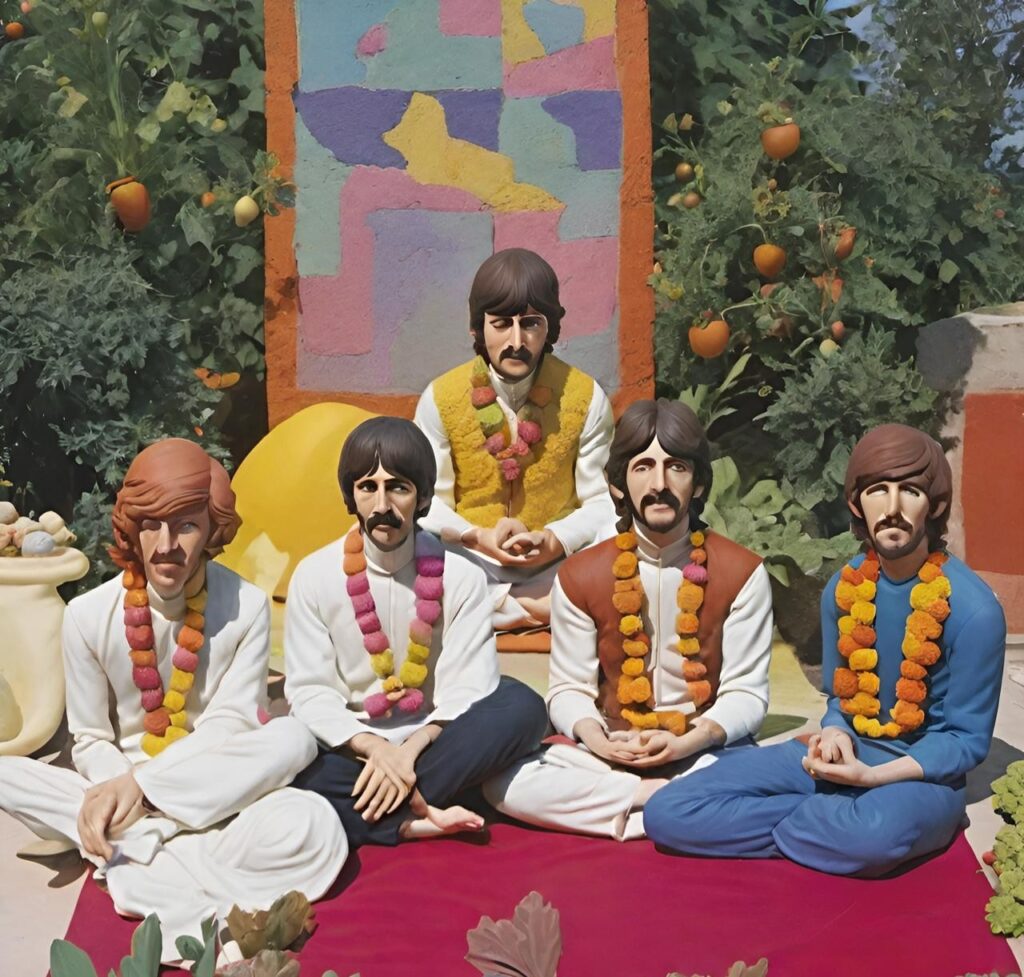In the mid-1960s, a cultural phenomenon emerged that would transform the Western perspective on spirituality and self-discovery. At the forefront of this movement was The Beatles, one of the most influential rock bands in history. Known for their innovative music and cultural impact, The Beatles played a pivotal role in introducing yoga and meditation to the West.
The Beatles’ interest in Eastern philosophy began to take shape in 1967 when George Harrison, the band’s lead guitarist, developed a deep fascination with Indian culture and spirituality. Harrison’s interest led him to study the sitar with renowned Indian musician Ravi Shankar, which subsequently introduced him to the broader aspects of Indian spirituality, including yoga and meditation.
Maharishi Mahesh Yogi
The turning point came in August 1967 when The Beatles attended a lecture by Maharishi Mahesh Yogi in London. Captivated by his teachings on Transcendental Meditation (TM), they decided to follow Maharishi to his ashram in Rishikesh, India, in early 1968. This retreat marked a significant period of creative and personal growth for the band.
During their stay in Rishikesh, The Beatles delved deeply into the practice of Transcendental Meditation under Maharishi’s guidance. This form of meditation, which focuses on the repetition of a mantra to achieve mental clarity and inner peace, resonated deeply with the band members. For John Lennon, Paul McCartney, George Harrison, and Ringo Starr, the experience was transformative, offering a respite from the pressures of fame and the tumultuous lifestyle of rock stars.
The time spent in India also proved to be extraordinarily productive musically. The serene environment and meditative practices inspired a wealth of new material. Many of the songs written during this period were later featured on their seminal “White Album,” including tracks like “Dear Prudence,” “Mother Nature’s Son,” and “Sexy Sadie.”
Bringing Eastern Practices to the West
The Beatles’ endorsement of Transcendental Meditation had a profound ripple effect. Their immense popularity and influence meant that their followers and fans quickly took an interest in the practices they adopted. The band’s public embrace of meditation and yoga sparked widespread curiosity and acceptance of these Eastern practices in Western culture.
George Harrison continued to be a passionate advocate for Indian spirituality throughout his life. His solo work, including the acclaimed album “All Things Must Pass,” frequently reflected his spiritual journey. Harrison’s devotion to Hinduism and his promotion of Indian culture had a lasting impact, further solidifying the integration of Eastern philosophies into Western consciousness.
Conclusion
The Beatles’ exploration of yoga and meditation marked a significant cultural shift, opening the doors to a broader acceptance and practice of Eastern spiritual disciplines in the West. Their journey to India and their public endorsement of Transcendental Meditation played a crucial role in demystifying these practices and presenting them as accessible tools for personal growth and well-being.
Today, yoga and meditation are mainstream practices embraced by millions worldwide, and much of this acceptance can be traced back to The Beatles’ pioneering efforts. Their foray into Eastern spirituality not only enriched their own lives and music but also left an indelible mark on Western culture, fostering a greater understanding and appreciation of holistic well-being practices.





